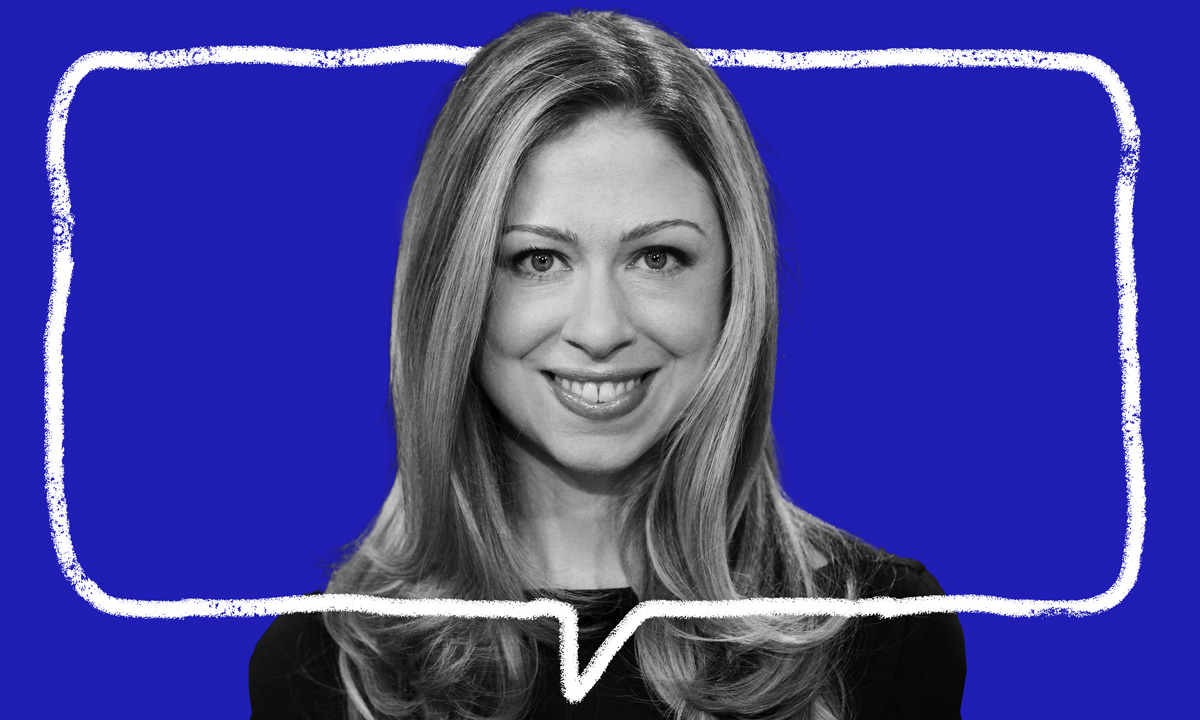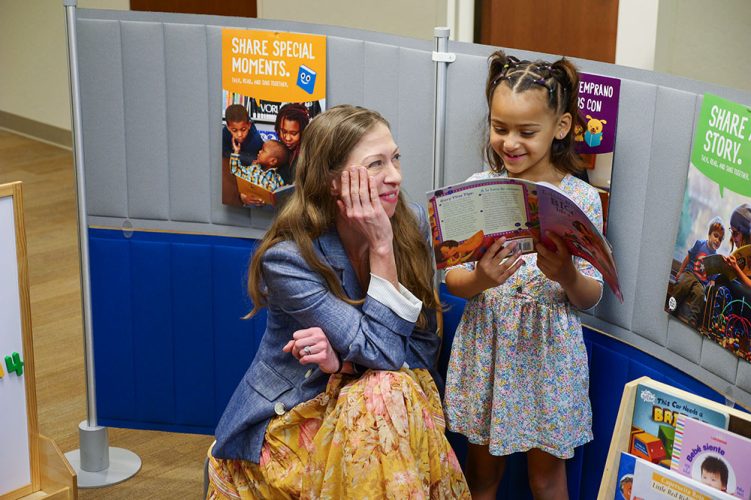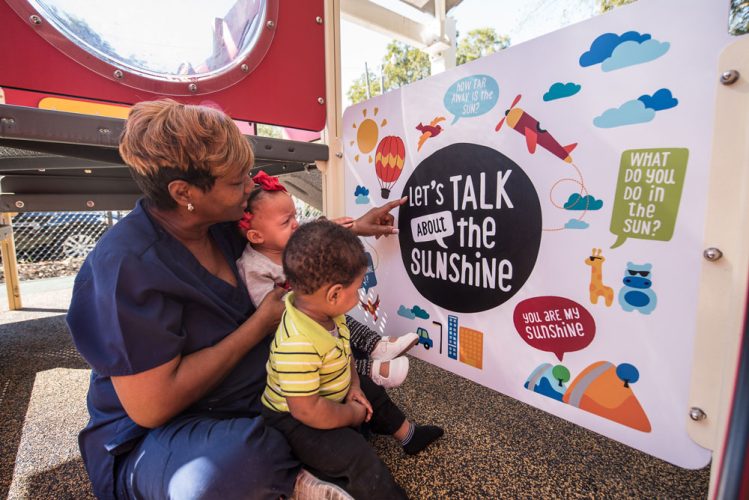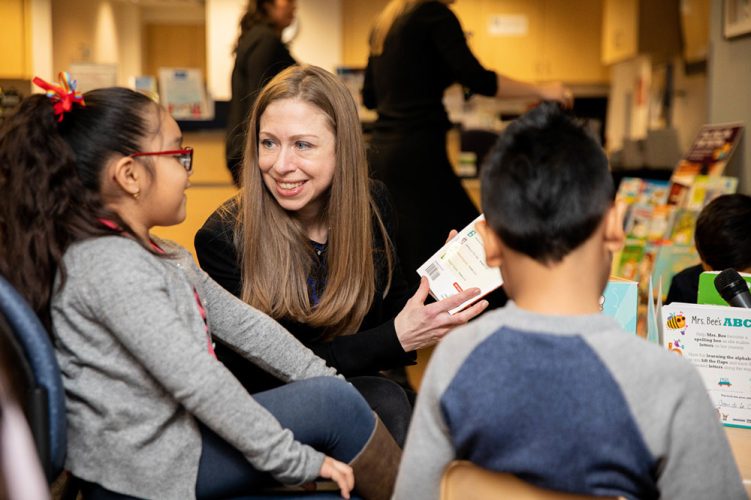Chelsea Clinton: Supporting Families Where They Are Matters for Early Childhood
Chelsea Clinton reflects on impact, lessons learned and what lies ahead for Too Small to Fail, an initiative supporting families with early learning.

Join our zero2eight Substack community for more discussion about the latest news in early care and education. Sign up now.
The Clinton Foundation launched Too Small to Fail in 2013 to support families with young children by providing opportunities and resources for early learning. Over the years, the initiative has leveraged partnerships to transform everyday spaces like libraries and playgrounds into places that promote meaningful interactions that foster early learning and development. It has cultivated early literacy champions across sectors, developing campaigns in states and collaborations with media companies.
Recently, Too Small to Fail released a new report outlining impact and lessons learned over the past decade. According to the report, research demonstrates that parents and caregivers talk, read and sing more frequently with their children after taking part in Too Small to Fail programming in laundromats, grocery stores, waiting rooms and other settings. One of the key takeaways is that trusted messengers, such as pediatricians and librarians, are the “secret sauce” to supporting families with young children in early literacy.
Too Small to Fail founder Hillary Rodham Clinton was a child advocate before going into politics. As a lawyer for the Children’s Defense Fund, she helped research the 1974 report Children Out of School in America, which examined the living conditions of American children and surfaced a number of barriers facing them. The findings in that report shaped her views on education and guided her in shaping the mission of Too Small to Fail.
Clinton is still actively involved in the work, alongside her daughter Chelsea Clinton, who chairs the initiative’s advisory council of advocates and researchers. The council, which includes Dana Suskind, founder and co-director of TMW Center for Early Learning + Public Health at the University of Chicago and Joan Lombardi, principal advisor at Stanford Center on Early Childhood, has helped Too Small to Fail scale its impact and stay abreast of the science behind reading.
“As a pediatric surgeon and social scientist who believes deeply in the power of parents and caregivers to build children’s brains,” says Suskind, “I am tremendously grateful for their work. Too Small to Fail meets families where they are, recognizing and honoring their inherent wisdom, and supporting that wisdom with the resources every child deserves. It continues to harness one of our most precious and infinite resources: the support of loving grown-ups to unlock every child’s full potential.”
Lombardi adds: “Too Small to Fail has been a persistent voice in supporting parents’ engagement with their young children and pioneering innovations in communities across the country.”
In an interview with Mark Swartz, Chelsea Clinton recollects her experiences over the first decade of Too Small to Fail and sets her sights on the coming years.
This interview has been lightly edited for length and clarity.

Swartz: What stands out to you from visiting laundromats, libraries and other Too Small To Fail sites?
Clinton: I have so many memories. What stands out is just the joy. There’s so much joy on the kids’ faces and also the parents’ or grandparents’ faces when they’re reading to their children in laundromats, whether in Chicago or New Orleans or Philadelphia. And while I’ve been to quite a few of these sites, it’s only a fraction of the hundreds that we helped build. There’s such a warmth and such a sense of welcoming and hospitality.

Swartz: What do you hear from the parents and grandparents?
Clinton: Real enthusiasm and excitement and gratitude that there now are more books that they’re able to read with their kids and in whatever language they need to be able to read them, to have those bonding moments, those teaching moments with their kids.
Swartz: You’ve talked to producers and writers about embedding Too Small to Fail messages into their shows, and that has had a tremendous reach. How did those partnerships work?
Clinton: I have this vivid memory of my mom and I going to Hollywood and speaking on a panel with lots of writers and showrunners and creative folks. We discussed the importance of reading, singing and talking to kids at every age whenever possible. Whether Orange Is the New Black or Jane the Virgin or Law & Order: Special Victims Unit, they found ways to embed the messages in ways that were organic for them. We believe it has been powerful for the audiences.
Swartz: And they didn’t say, “Thanks, but we don’t need your advice on how to create a story”?
Clinton: We’ve had really wonderful, delightful, productive conversations with folks in Hollywood over many years. We’ve talked about the importance of parents or grandparents and anyone that’s around [young children] — about the understanding that we are effectively their first teachers. We’ve also had really productive conversations in Hollywood about the ways in which climate change affects our most vulnerable [Americans], including infants and toddlers. We always feel that if we’re sharing recent research and evidence, if it’s something that is in the context of how they’re thinking about future episodes of the future arc of a show, maybe it will be incorporated at some point.
Swartz: Besides your own mother, who have your early childhood heroes or influences been?
Clinton: Certainly my grandmothers. I was very, very close with both of my grandmothers. I was really lucky to spend a lot of time with each of them as a kid and could not imagine my childhood without them. I only wish that I could have known my dad’s mom as an adult. I always had great teachers, and I remember preschool being so fun. I have quite clear memories of my kindergarten and first grade teachers, Mrs. Minor and Mrs. Mitchell.

Swartz: How has your own motherhood journey influenced your understanding of the early childhood issues that Too Small to Fail addresses?
Clinton: Becoming a parent didn’t shift what I cared about as much as it sharpened everything I cared about. I cared even more intensely about early childhood education and supporting what parents and other caregivers need to be the best teachers. … Candidly, I didn’t know that I could care any more about the things that I already cared about, and then I became a parent and somehow discovered that I could. That was a revelation to me. Everything feels even more intense because it now feels so personal, because now it’s about my kids and their cohort and the world that they’re growing up in.
Swartz: What are you most excited about for the next 10 years of Too Small to Fail?
Clinton: I’m most excited about continuing to build on what’s working. We have a lot of research now that [shows that] what we’re doing is working, so we should do more of it. We should also be open to whatever our remarkable community suggests that we should try next.
Get stories like these delivered straight to your inbox. Sign up for The 74 Newsletter


;)
